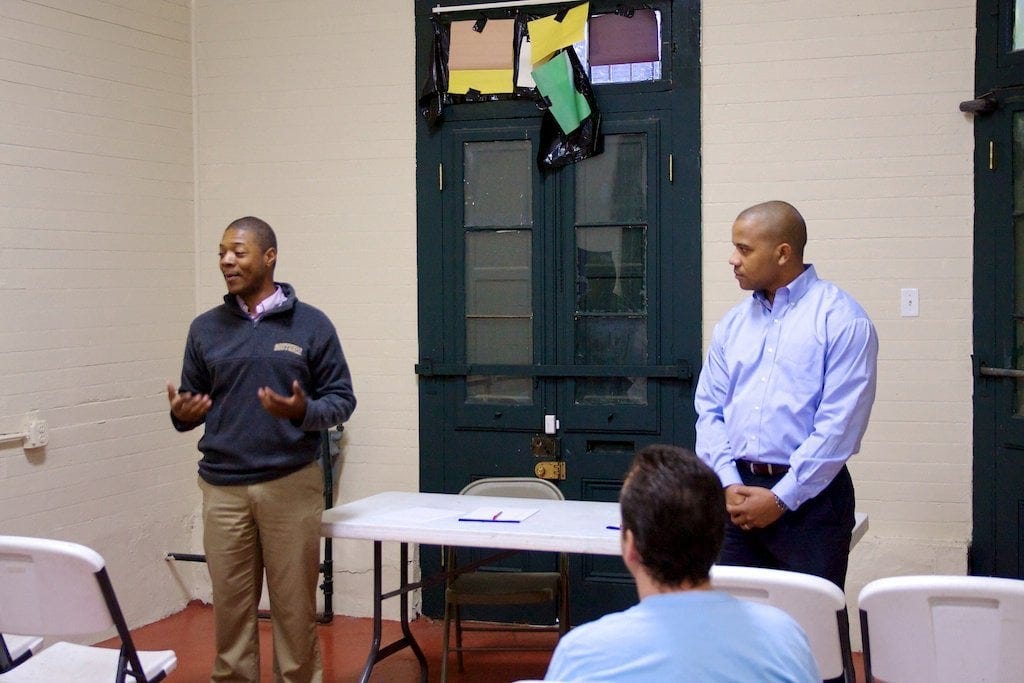Imagining a Healthier New Orleans...
Building a "Culture of Health" can reduce crime, address climate change and improve the economy
When the Affordable Care Act was signed into law in 2010, I was a 27-year-old non-profit executive operating the now-defunct 7th Ward Neighborhood Center, a community-based organization devoted to improving quality of life issues in the historic neighborhood through programs focused on health and wellness, arts and culture, neighborhood beautification and youth and families.
I’d watched as the landmark legislation made its way through the House and Senate and to President Obama’s desk for signature. It was an historic moment, a rare victory for working people amid D.C. gridlock. That, I said to myself, was change we could believe in. I was proud when then-OFA Louisiana Director Josh Harris contacted me and asked if we could do a joint, non-partisan community meeting to discuss how the legislation would impact everyday folks. The 7WNC later became an information hub for the law, and I became involved in President Obama’s successful re-election campaign in 2012.
HealthyNOLA Chief Executive Officer Sam Cook in 2010 with then-Organizing for America - Louisiana Executive Director Josh Harris during a community meeting discussing the Affordable Care Act.
I was equally pleased when First Lady Michelle Obama launched her “Let’s Move!” Initiative. Her inspiration resulted in an influx of traditionally underserved black and brown women flocking to our weekly Zumba and yoga group exercise classes. It was a much-needed, national emphasis on improving minority health and wellness. Let’s Move! was a necessary complement to the Affordable Care Act. While the ACA moved more Americans onto the health insurance rolls, Let’s Move! encouraged Americans to be more active, eat healthier and sit less.
A year later, Mayor Mitch Landrieu—understanding that a progressive, 21st century city is a healthy city—joined the Let’s Move! Cities Initiative. Under his leadership a re-imagining of the way New Orleanians lived, played and worked occurred. Landrieu had a bold vision: that New Orleans would be a Top-10 healthiest city by 2018, one that embraced a culture of health. New Orleans had long been a city crippled by poor health outcomes, particularly among the city’s low-income residents. In nearly every category, from obesity to childhood mortality to chronic illness and premature death, New Orleans ranked among the worst cities in the country. By joining Let’s Move!, Landrieu was working to directly address the public health issues that plagued New Orleans pre-Katrina.
In order to meet the social, economic political, educational and civic challenges of the future, New Orleans needed a healthier population. Under Landrieu’s sweeping reforms, New Orleans became an award-winning city, earning a prized Culture of Health award from the Robert Wood Johnson Foundation. From Complete Streets to public-private partnered wellness programs to healthy vending in schools, New Orleans was a city embracing a healthier way of life. I was proud to join the Landrieu Administration in 2015, and to ultimately become a manager for one of the city’s Let’s Move! programs, leading a team that provided low-to-no cost group exercise opportunities at the city’s parks and playgrounds.
Investing in mental health services and creating healthy outlets for stress relief can reduce crime, anxiety and gun violence.
Unfortunately, many of the initiatives created under Let’s Move no longer exist. And the health disparities that have long festered due to lack of public health education, solid public policy and political will have, in some ways, only gotten worse. It’s true that New Orleans faces big challenges: climate change, gun violence, failing schools, high poverty rates. These challenges, so public facing and pervasive, so politically charged, often take precedence over the other issues New Orleans residents face.
It doesn’t have to be this way.
Building a culture of health—physical, mental, social—can even attenuate some of the other issues we face.
Complete Streets, for example, designed to promote alternative modes of transportation, including walking, biking and taking public transportation, can reduce emissions.
Investing in mental health services and creating healthy outlets for stress relief can help to reduce crime, anxiety and gun violence.
Healthier employees can improve the local economy by reducing absenteeism, presenteeism and low worker productivity due to chronic health issues.
Creating opportunities for meaningful interactions can reduce social isolation and feelings of loneliness.
A healthier New Orleans isn’t just a more physically fit New Orleans—it’s a New Orleans that understands that health is mental, physical and social, and is deeply related to broader social, political and economic issues. It’s a New Orleans that actively works to address the social roots of poor health: food insecurity, social inclusion, access to affordable healthcare, job insecurity and unemployment, education, structural conflict.
It’s a New Orleans where all residents have access to affordable, healthy, fresh foods.
It’s a New Orleans where mental health services are adequately funded and amply available.
It’s a New Orleans where parks are well-lit, streets are safe, and recreation is not only well-funded, but high quality.
These are challenges we can meet, but they are challenges that require us to reject cynicism, doubt and division and embrace a unified vision of a New Orleans that promotes health, wellness and inclusion for all.





